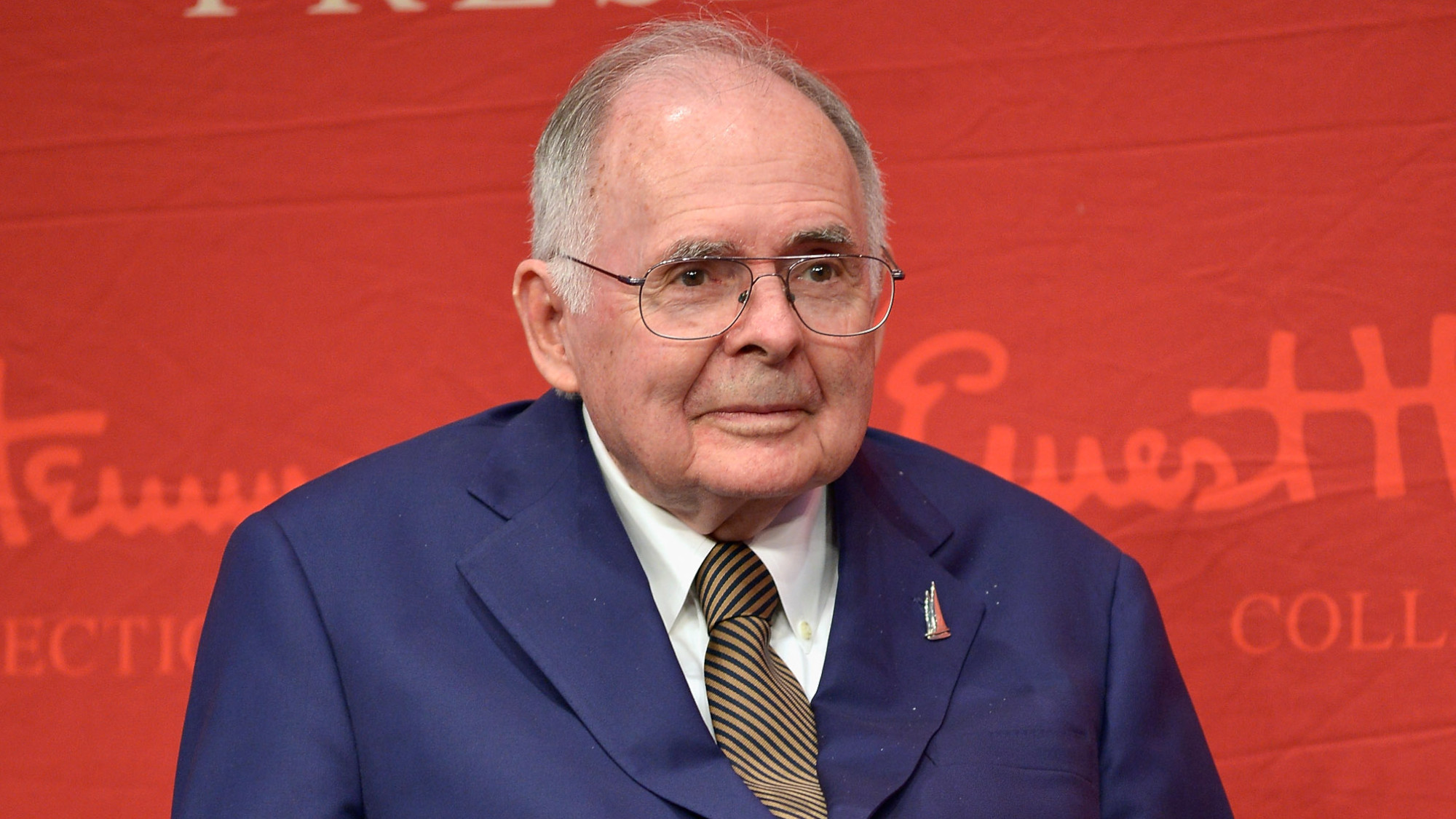Patrick Hemingway: The Hemingway son who tended to his father’s legacy
He was comfortable in the shadow of his famous father, Ernest Hemingway

A free daily email with the biggest news stories of the day – and the best features from TheWeek.com
You are now subscribed
Your newsletter sign-up was successful
Patrick Hemingway was comfortable in the shadow of his famous father, Ernest Hemingway. Though the elder Hemingway was famously troubled and mercurial, their affection was deep and mutual. “I would rather fish with you and shoot with you than anybody that I have ever known since I was a boy,” Ernest wrote in a letter to his son. Patrick completed Ernest’s unfinished novel True at First Light and published Dear Papa, a collection of 120 letters the two exchanged over a period of 30 years. His father’s outsized reputation, Patrick said, “didn’t bother me because I don’t think that I was terribly ambitious.”
Patrick Miller Hemingway was born in Kansas City, Mo., to Ernest and his second wife, Pauline Pfeiffer, during a stopover in the family’s many travels. The middle child of three boys, Patrick mostly spent his childhood “in Key West with summers in Wyoming and Idaho while his private school education was punctuated by regular hunting and fishing trips,” said The Times (U.K.). Inspired by his father’s 1935 novel The Green Hills of Africa, Patrick moved to Tanzania in 1951, funding the move by selling the Arkansas plantation he inherited on his mother’s death. He became a safari guide, hunter, and forestry officer for the United Nations, returning to the U.S. in 1975.
Hemingway “managed a long life in a family haunted by suicide and mental illness,” said the Associated Press. Patrick’s brother Gregory, who transitioned and adopted the name Gloria, struggled with alcohol abuse and died in a Miami jail cell in 2001. Ernest famously suffered from depression and alcoholism and shot himself in 1961. “Under proper treatment, he would have had a nice old age,” Patrick said, before adding sardonically, “there’s no such thing as a nice old age.”
The Week
Escape your echo chamber. Get the facts behind the news, plus analysis from multiple perspectives.

Sign up for The Week's Free Newsletters
From our morning news briefing to a weekly Good News Newsletter, get the best of The Week delivered directly to your inbox.
From our morning news briefing to a weekly Good News Newsletter, get the best of The Week delivered directly to your inbox.
A free daily email with the biggest news stories of the day – and the best features from TheWeek.com
-
 Why are election experts taking Trump’s midterm threats seriously?
Why are election experts taking Trump’s midterm threats seriously?IN THE SPOTLIGHT As the president muses about polling place deployments and a centralized electoral system aimed at one-party control, lawmakers are taking this administration at its word
-
 ‘Restaurateurs have become millionaires’
‘Restaurateurs have become millionaires’Instant Opinion Opinion, comment and editorials of the day
-
 Earth is rapidly approaching a ‘hothouse’ trajectory of warming
Earth is rapidly approaching a ‘hothouse’ trajectory of warmingThe explainer It may become impossible to fix
-
 Kia EV4: a ‘terrifically comfy’ electric car
Kia EV4: a ‘terrifically comfy’ electric carThe Week Recommends The family-friendly vehicle has ‘plush seats’ and generous space
-
 Bonfire of the Murdochs: an ‘utterly gripping’ book
Bonfire of the Murdochs: an ‘utterly gripping’ bookThe Week Recommends Gabriel Sherman examines Rupert Murdoch’s ‘war of succession’ over his media empire
-
 Gwen John: Strange Beauties – a ‘superb’ retrospective
Gwen John: Strange Beauties – a ‘superb’ retrospectiveThe Week Recommends ‘Daunting’ show at the National Museum Cardiff plunges viewers into the Welsh artist’s ‘spiritual, austere existence’
-
 Bad Bunny’s Super Bowl: A win for unity
Bad Bunny’s Super Bowl: A win for unityFeature The global superstar's halftime show was a celebration for everyone to enjoy
-
 Book reviews: ‘Bonfire of the Murdochs’ and ‘The Typewriter and the Guillotine’
Book reviews: ‘Bonfire of the Murdochs’ and ‘The Typewriter and the Guillotine’Feature New insights into the Murdoch family’s turmoil and a renowned journalist’s time in pre-World War II Paris
-
 6 exquisite homes with vast acreage
6 exquisite homes with vast acreageFeature Featuring an off-the-grid contemporary home in New Mexico and lakefront farmhouse in Massachusetts
-
 Film reviews: ‘Wuthering Heights,’ ‘Good Luck, Have Fun, Don’t Die,’ and ‘Sirat’
Film reviews: ‘Wuthering Heights,’ ‘Good Luck, Have Fun, Don’t Die,’ and ‘Sirat’Feature An inconvenient love torments a would-be couple, a gonzo time traveler seeks to save humanity from AI, and a father’s desperate search goes deeply sideways
-
 A thrilling foodie city in northern Japan
A thrilling foodie city in northern JapanThe Week Recommends The food scene here is ‘unspoilt’ and ‘fun’